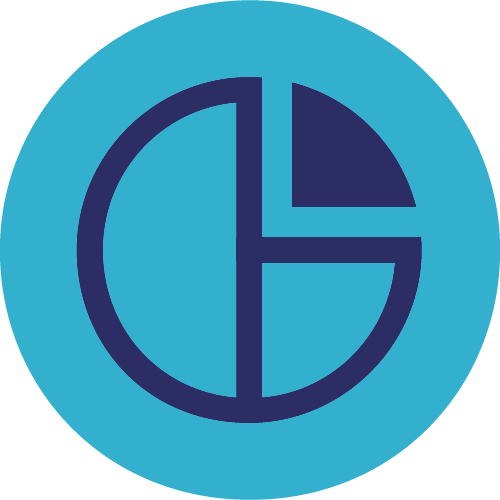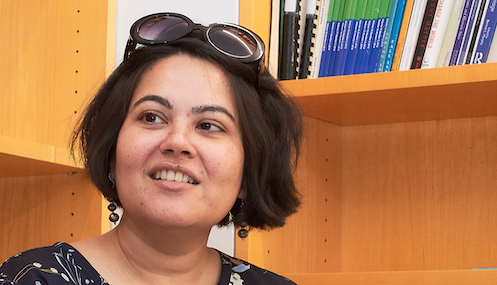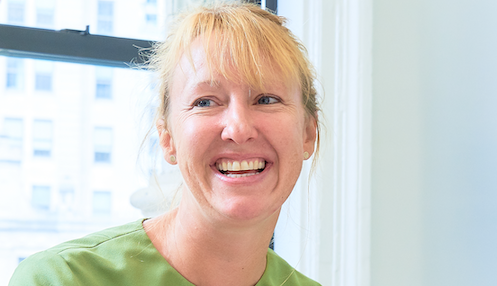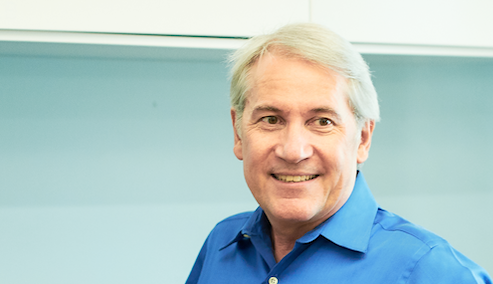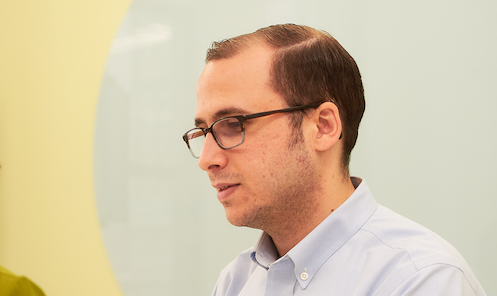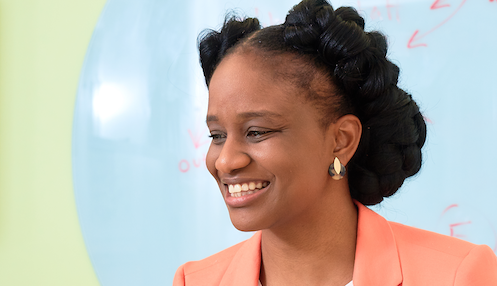Beginning our Evaluation Journey
Back in January we mapped out our journey into 2021 by committing to walk our talk, specifically when it comes to implementing evaluation strategies that center community voice. This year we paused our Measuring What Matters program to be intentional and strategic about its design, implementation, and impact on our nonprofit community. For those not familiar with it, Measuring What Matters is our longest-running program and offers an opportunity for organization-based teams to work on a data & evaluation-related project in a facilitated space with peer and group support. With four cohorts and over 150 participants, Measuring What Matters has become a keystone of the way we think about our community of support.
Earlier this year we released an RFP to find an evaluation firm that believes in the same principles we do and holds community-driven evaluation as a core foundation of its work. In thinking about who could do this work we cast our net wide and received several high-quality proposals from local and national evaluation firms. With our community review and selection process concluded, we are excited to introduce our selected firm, Knology.
Knology produces practical social science for a better world. A collective of scientists, writers, and educators, Knology is dedicated to studying and untangling complex social issues. Get to know our Knology research team below!
Who is on our Knology research team?
Rupu Gupta: Rupu leads Knology’s Biosphere research pillar. She is a conservation psychologist specializing in mixed-methods and culturally responsive evaluation methods, with expertise in studying equity and inclusion in the environmental sector.
Rebecca Joy Norlander: Rebecca leads Knology’s Culture research pillar and has a background in human rights education and qualitative research design. Her PhD specialization was in transformative social change.
John Fraser: John is a psychologist and educator whose research focuses on how understanding of our multiple selves in different settings can drive engagement with social challenges. He is President & CEO of Knology.
Shaun Field: Shaun is a researcher/project manager at Knology with a background in quantitative research methods. He has research experience in genetics, climate science and international climate law and policy
Uduak Grace Thomas: Uduak is a writer and editor at Knology with a background in bioethics and journalism. Previously she was a science journalist and wrote extensively about computational biology and bioinformatics topics.
How did you come to be doing this kind of work?
Knology was founded by a group of nonprofit leaders to expand the capacity of organizations to bring social science theory to the problems they aim to solve. Since founding, we’ve worked with nonprofits across different sectors to advance measurement strategies that acknowledge the diversity and richness of our cultures as a path to building a stronger society.
The people that join our team have a common vision for practical social science that helps all people work toward a better world. We’re motivated by a love of exploration, people and ideas, and a firm belief that ALL need to be part of the solutions to social problems. We have many of the qualities of academics but with a more boots-on-the-ground approach to doing applied research, with real-world implications. This mindset also lends us to taking a constructivist approach to evaluation, where evaluators are part of a collaborative team working with the project stakeholders to continuously shape the project. Furthermore, we always strive to acknowledge our own biases and work to mitigate their effects in all our partnerships.
What excites you most about this project?
Community voice is an emerging practice in evaluation. It is extremely valuable because we can only know the real impact of a program if all voices are given opportunity. As a nonprofit organization, we are very aware of structural issues in the field and the ways that current practices and biases perpetuate the issue. We care deeply about data and evaluation and we look for opportunities to work with people who recognize their importance. And we are open to learning how our partners are embedding equity and inclusion in their own work. We are excited to engage with the curious and motivated group of leaders at Mission Capital and those who participated in the Good Measure program, to support efforts to use evidence-based data to advance organizational goals.
Why is community voice important to your evaluation process?
Unless we know how people think and what matters to them, it isn't possible to engage meaningfully with them. That’s why we believe a culturally responsive approach is a more authentic way of doing evaluation. Across our projects, we think carefully about how to engage with the people and communities that make up our audiences as equals and ensure that their voices and perspectives are heard. We aim to ensure we adhere to cultural competence standards in all aspects of our evaluation work. We use what we hear to help shape the programs and initiatives that impact their lives.
Tell us about your experience centering equity in evaluation projects.
We believe in culturally responsive evaluation methods, where we are always mindful of the specific circumstances of partners’ needs. We use participatory action research strategies, where we work collaboratively with our partner organizations to shape the direction of the project. These strategies ensure that everyone contributes equally to the work and brings their distinct perspectives to the table. Previously, we worked with the National Park Foundation and several partners on an initiative designed to support leadership opportunities for communities of color and help them engage with nature. We currently partner with the Urban Libraries Council to evaluate how public libraries in urban contexts support local entrepreneurs, particularly those left out of traditional support networks.
What is your hope for how the outcome of this project will affect our future programming?
Equity centered evaluation is an exciting area of practice. Documenting our process and the story of this project will provide a useful example of how to apply this kind of evaluative framework to program implementation. We hope that through this evaluation, Mission Capital emerges with new strategies for engaging with nonprofits in the Central Texas region that they can continue to use beyond the current project. More broadly, our goals are to help the nonprofit community as a whole understand how principles of reciprocity and shared learning can strengthen their work, and to celebrate the many paths people take on their learning journey. For those familiar with equity-centered evaluation, we hope that this collaboration builds a stronger understanding of how to improve on these practices. For those unfamiliar with this work, we believe that the collaboration will help them build these processes internally.
As Knology works with our Measuring What Matters alums over the next few months, we’ll be featuring more of our learnings on the blog with a project summary planned for this fall. Measuring What Matters will relaunch in 2022 with a fresh take on what it means to support organizational teams through data & evaluation projects that center equity and community voice. We’re excited to embark on and share this journey with our Good Measure community!

